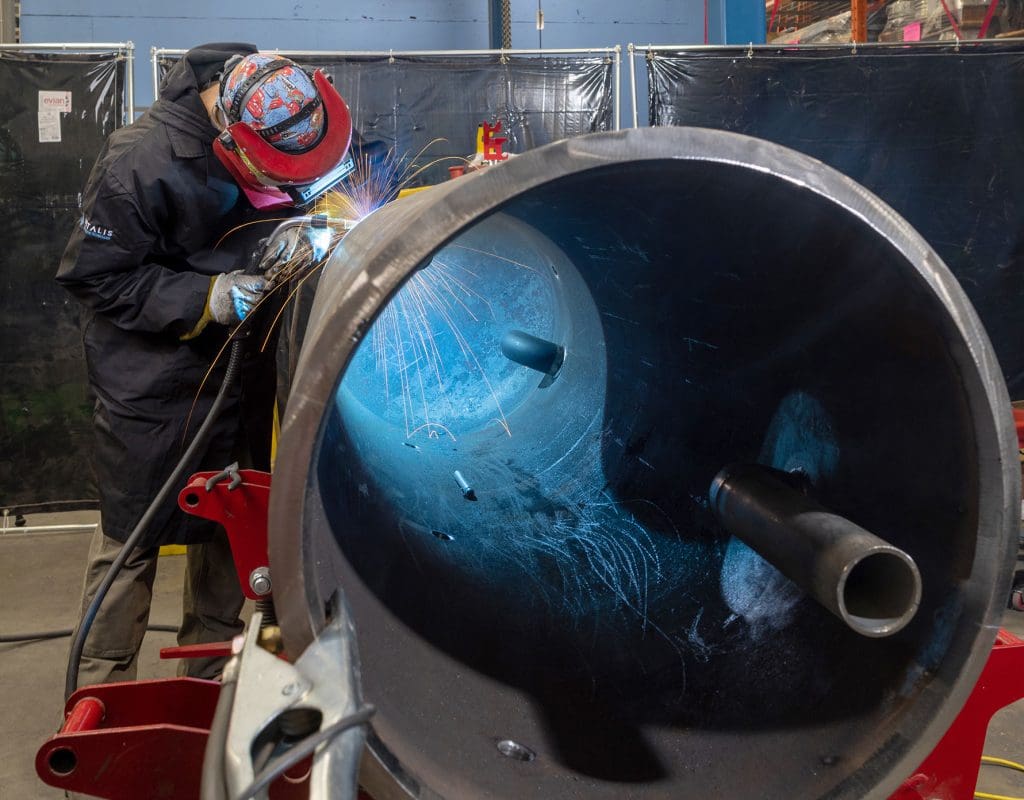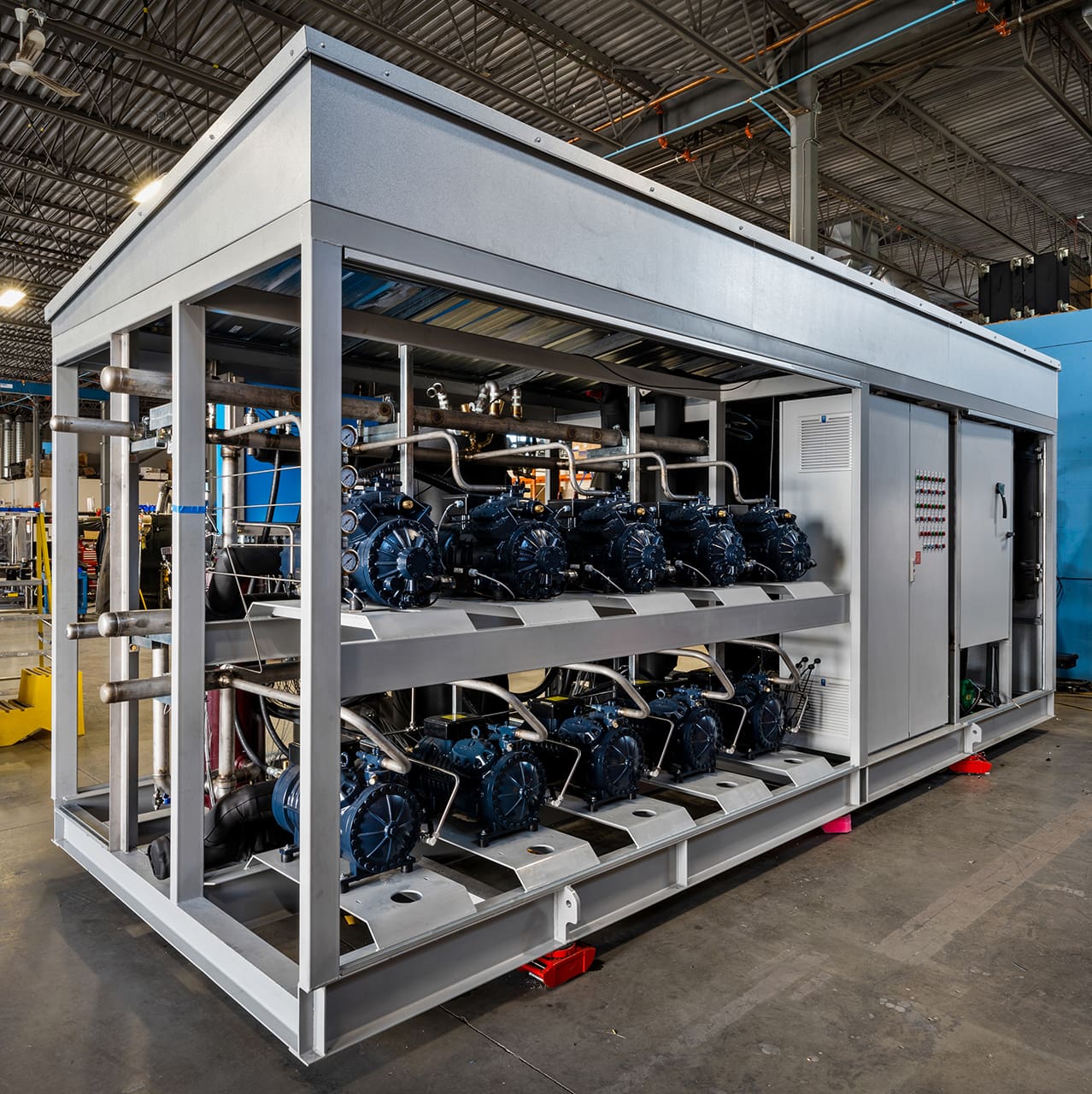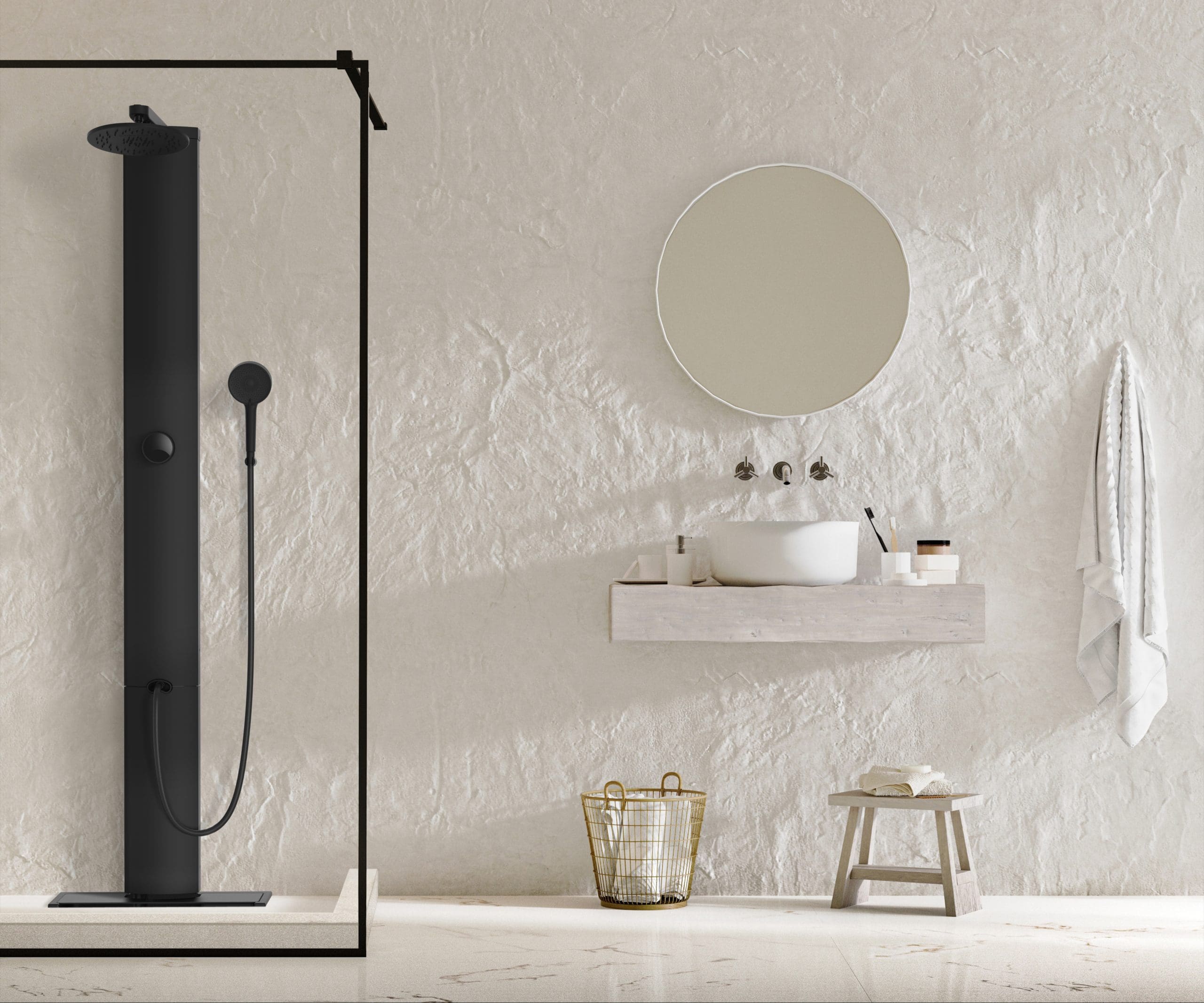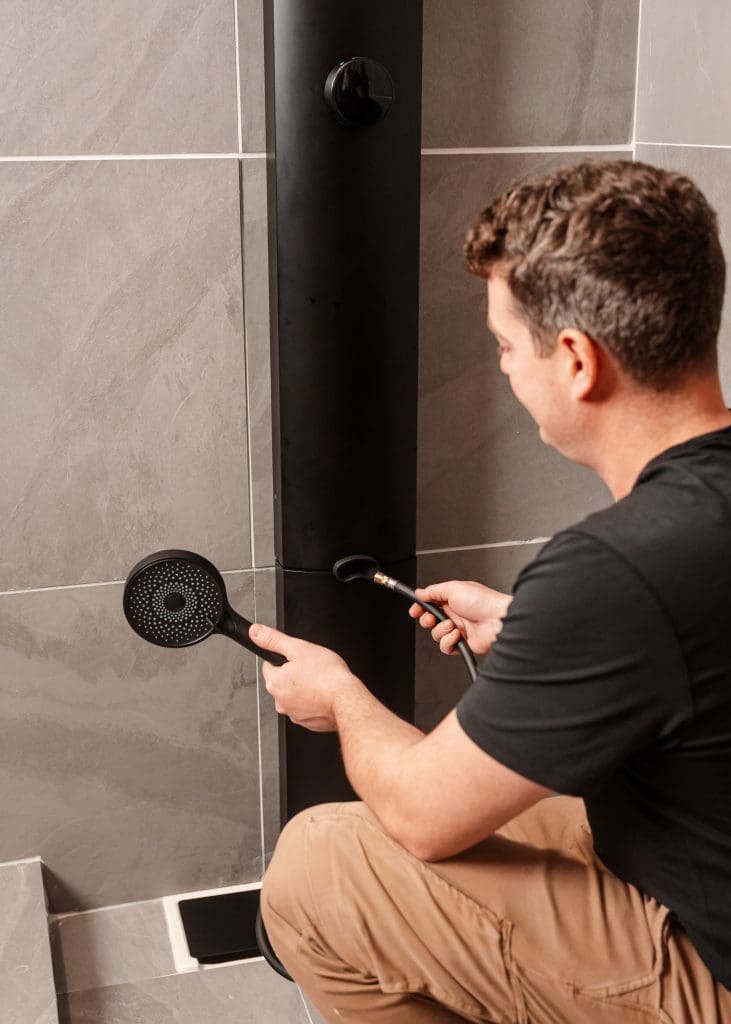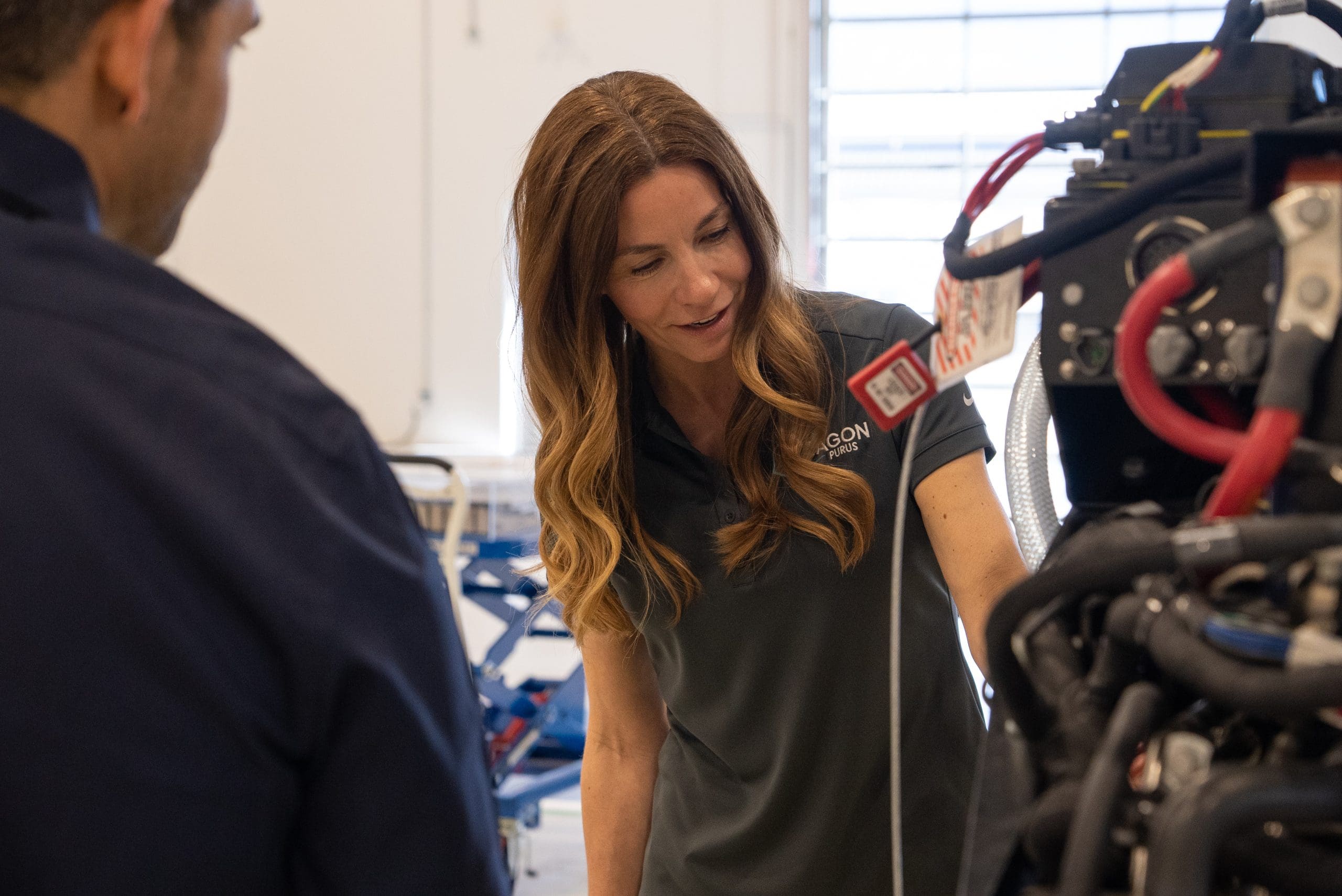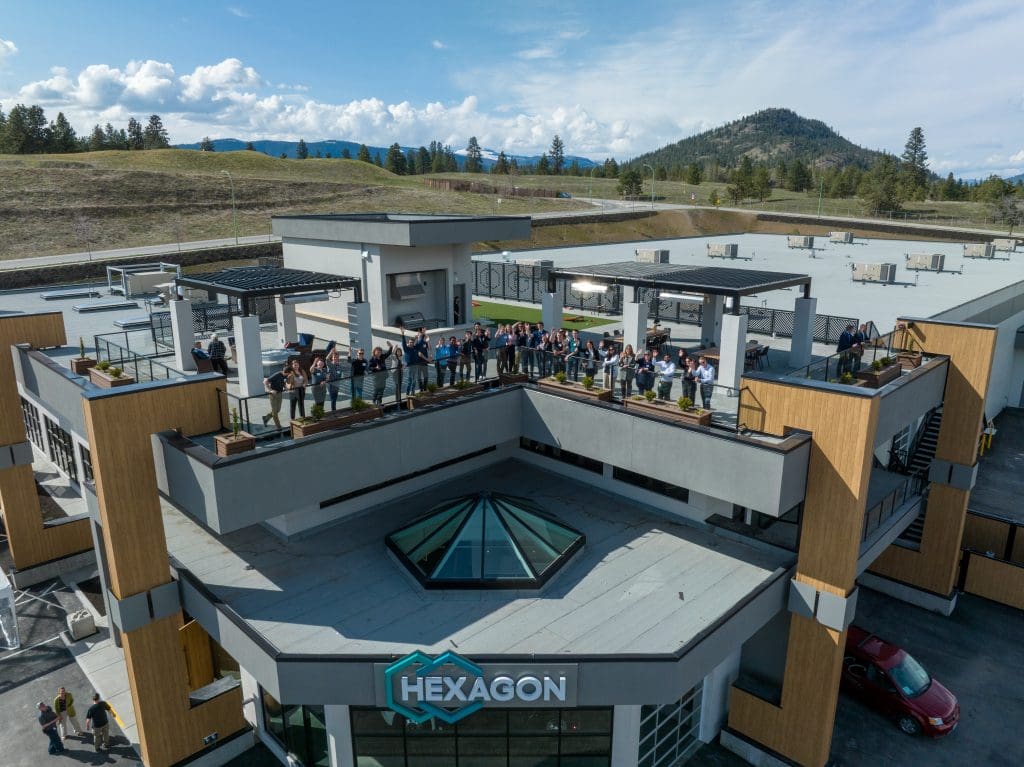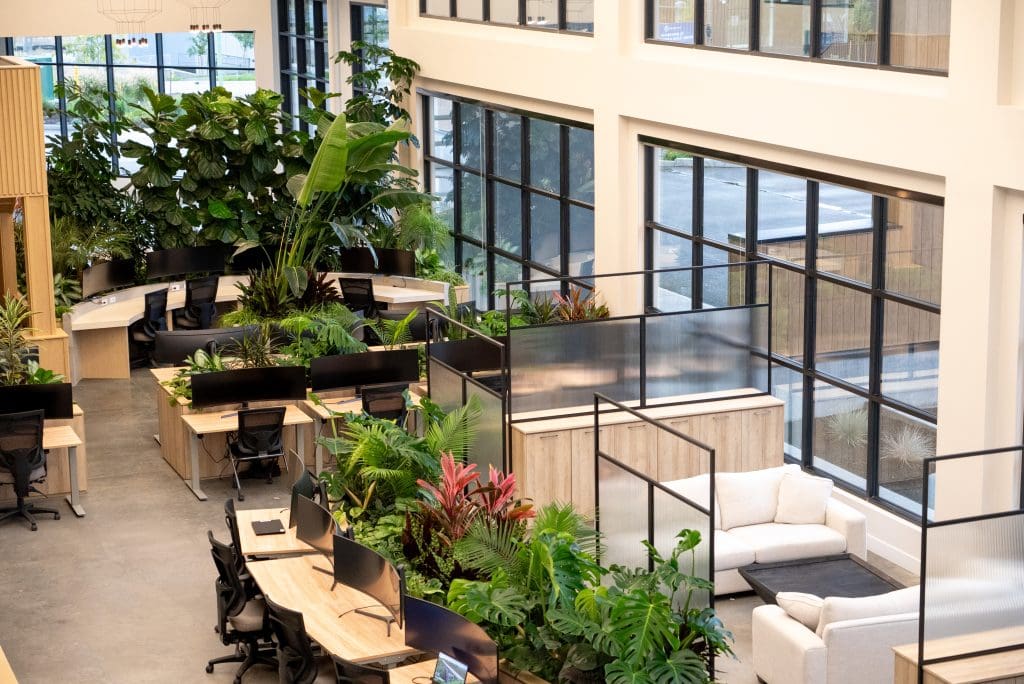Since its launch in 2016, Vitalis—named the third fastest growing company in Canada by the Globe & Mail in 2020—has proven its expertise in CO2 handling, supporting and furthering the cleantech industry within the Okanagan and beyond. As an original equipment manufacturer (OEM), Vitalis has created different lines of industrial and commercial products, including equipment for CO2 extraction, heating and cooling, and capture, cleaning, and storage.
“We had been going down the path of launching the product line of CO2 (R744) heating and cooling equipment, and were able to attract some significant investment,” explains VP of Revenue, Carla Berrie.
This investment came in the form of an acquisition by the KKVB Group in spring 2024. German-based KKVB Group—now a majority shareholder in Vitalis—is the parent company of TEKO, who has built commercial and industrial CO2 refrigeration systems for European and international markets since 2004.
“Vitalis not only provides TEKO with direct access to the North American market, but it also contributes an incredible depth and breadth of R744-based applications and knowhow that significantly expands our ability to engineer and deliver sustainable solutions across refrigeration, district and industrial heat pumps, industrial extraction processes and CO2 recovery,” said TEKO Managing Director, Andreas Meier, in a press release announcing the acquisition.
Berrie explains that thanks to the KKVB Group’s European market share and complementary intellectual property, the acquisition bolsters Vitalis’ competitiveness in the global market, while allowing operational control of the business to remain local in the Central Okanagan.
“In discussions with the Government of Canada’s Joint Economic Development Initiative (JEDI), they said this is the type of investment Canada looks for, since it’s investing in both cleantech and manufacturing, both sectors the country wants to grow,” notes Berrie.
Since the acquisition, Vitalis has been able to gain a significant number of new contracts for its industrial heat pumps. The company has also expanded its manufacturing capabilities to double the space it already had, generating jobs locally for highly skilled labourers and engineers.
“Vitalis will play a central role in pursuing our vision of establishing KKVB Group as a global leader in the transition of mission-critical refrigeration and heating applications to sustainable solutions that can support commercial and industrial supply-chains as well as residential comfort while minimizing their environmental impact,” said Michael Millbrodt, Managing Director of KKVB Group.
While Vitalis’ sustainable solutions are expanding on the global market, closer to home the company is setting up one of its Vitalis Coolshift™ centralized air-source heat pumps at the University of British Columbia Okanagan (UBCO) campus. This heat pump, using R744 (i.e., CO2 as a natural refrigerant with ultra-low global warming potential) will be the primary heating source, and an auxiliary cooling source, for the campus’ low-temperature district energy system, helping UBCO in its pursuit of reducing its greenhouse gas emissions and achieving its decarbonization goals.
“Not only are we providing a very energy efficient system for UBCO, which is economical and provides energy security, but it also moves the needle on the university’s decarbonization targets,” says Berrie. “With decarbonization targets, it’s little piece by little piece but sometimes when a big boulder like this can be moved and you can really move the needle, it’s invigorating.”
As Vitalis continues to expand its reach locally, nationally, and globally, the positive social and environmental impacts its products have in communities through the effective use of CO2 as a natural refrigerant will grow.
